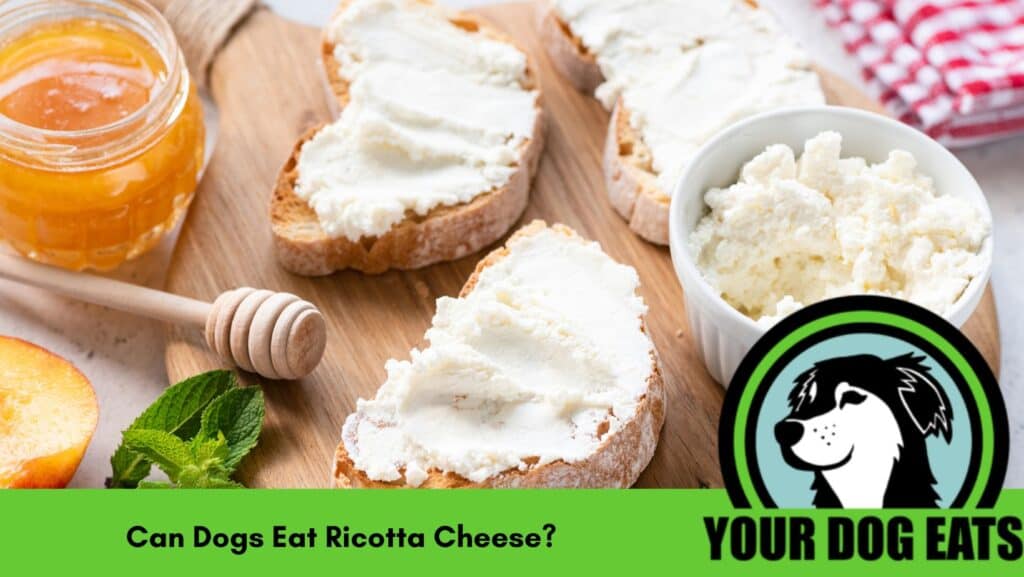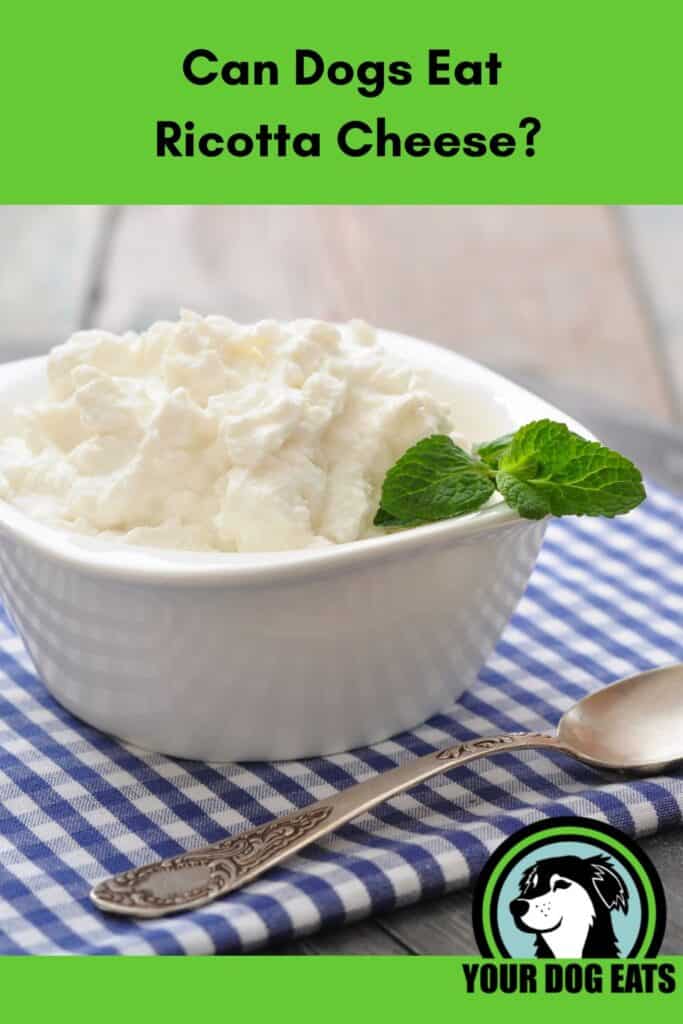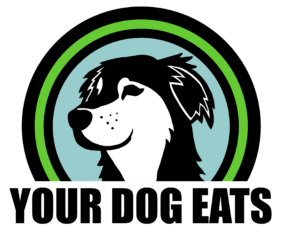Many people are wondering: can dogs eat ricotta cheese? Is it safe? The answer to this question is yes, ricotta cheese is safe for dogs to eat. However, you should only give your dog a small amount of ricotta cheese at a time and make sure that they do not have any allergies to dairy products, or that they have too much fat at once.
Ricotta cheese – in small portions once in a while – is a healthy snack for dogs and contains many nutrients that are beneficial for their health.
This post was reviewed for veterinary accuracy by Cara Wright, DVM. For more information about our review process, please visit the About Us page. This article is for informational purposes only and should not be a substitute for professional veterinary help.

What is ricotta cheese?
Ricotta cheese is a type of cheese that is made from the whey of cow’s milk. It has a smooth, creamy texture and it is white in color. Ricotta cheese is a very versatile cheese and can be used in many different recipes.
Ricotta is often used in pasta dishes, such as lasagna or in stuffed manicotti.
Ricotta and lactose
Did you know that just like people, some dogs are lactose intolerant? This means that their bodies cannot digest milk products properly.
Ricotta is a ‘young’ cheese, which means that it has more lactose than a cheese that has aged for months (or even years), such as sharp cheddar or parmesan (1).
Symptoms of lactose intolerance in dogs include vomiting, diarrhea, and gas. If your dog has any of these symptoms after eating ricotta cheese, it is best to consult with your veterinarian (2).
Nutrients in ricotta
As with any milk product, ricotta cheese is rich in nutrients that are beneficial to your dog. These include protein, calcium, and Vitamins A & B12 (3).
Protein helps your dog build and maintain muscle mass, as well as a healthy coat.
Calcium is essential for strong bones and teeth.
Vitamins A & B12 help with eyesight and red blood cell production, respectively.
However, ricotta is also high in fat. Dogs are not able to tolerate much fat at once. Giving your dog a lot of fat at once, or continuing to feed your dog high-fat meals or snacks increases the risk that your dog may develop pancreatitis; a life-threatening condition.
Pancreatitis in dogs
Pancreatitis is a serious and life-threatening condition in dogs that can happen if they consume too much fat at once, or too much fat continuously.
Pancreatitis in dogs can be subtle (4). Symptoms can include:
- Abdominal pain
- Vomiting
- Diarrhea
- Hunched back
If your dog is showing any of these signs, it is important to contact your veterinarian immediately.
If you want to feed ricotta cheese to your dog, do so in moderation and as part of a healthy diet. You don’t want to replace their regular, vet-approved kibble.
Skip other seasonings
Remember how ricotta is often used to make your favorite Italian meals including lasagna and stuffed shells? While those are fabulous and safe dinners for you, they’re not safe or healthy for your dog.
While plain ricotta is fine in small amounts once in a while, the garlic, onions, and other seasonings that ricotta is often mixed with can wreak havoc on your dog’s stomach and digestive system.
Key takeaway: do not feed your dog onions or garlic.
So, it’s best to avoid ricotta cheese that has been seasoned or mixed with other foods that may be toxic.
The bottom line
Ricotta cheese is safe for dogs in moderation as part of a healthy diet. Be sure to check with your veterinarian if you have any concerns.

